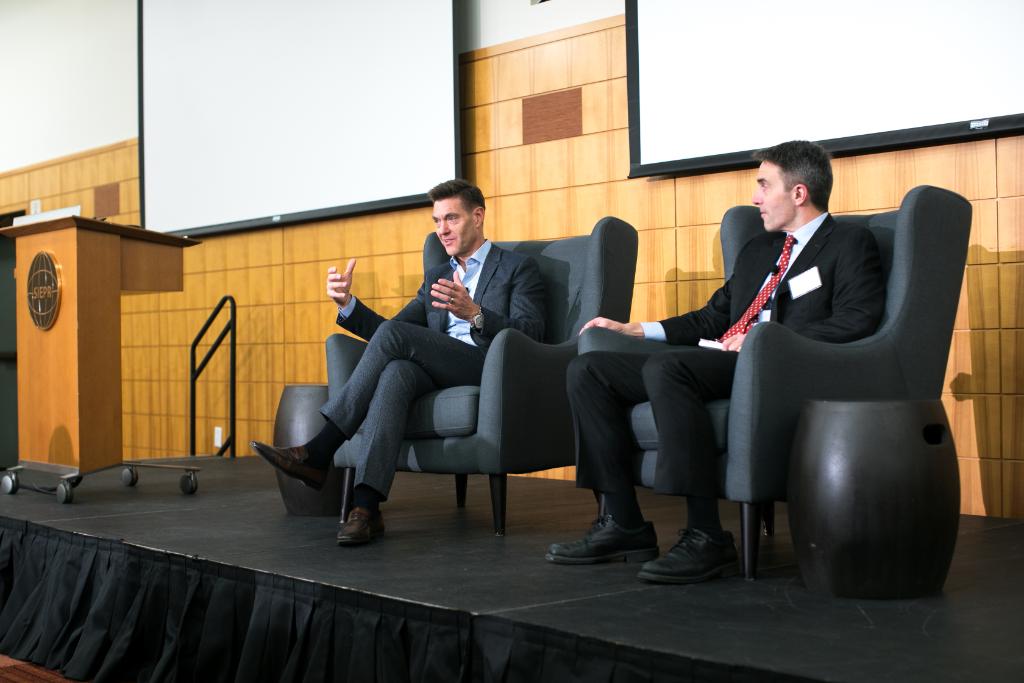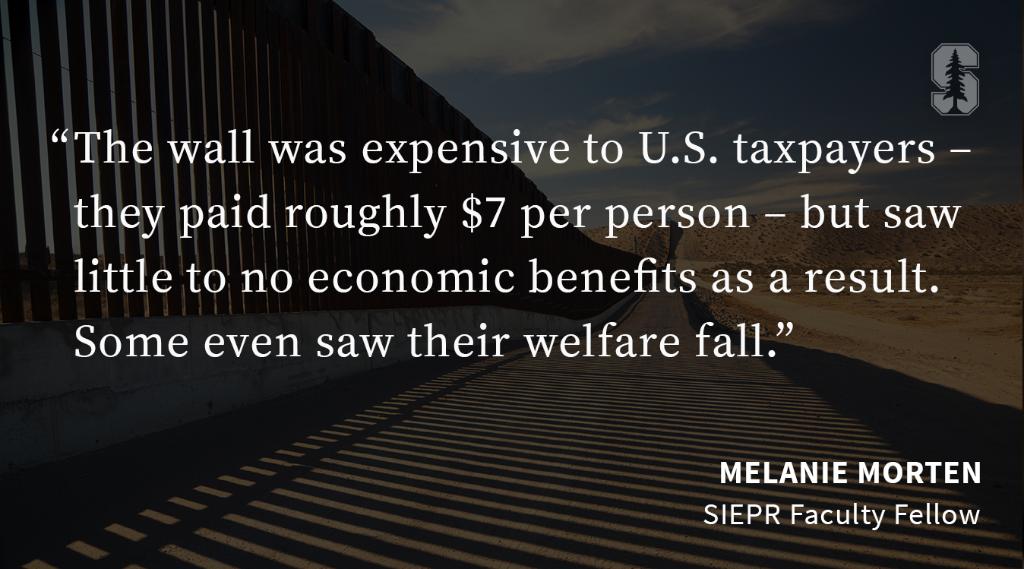Tweetek
- Tweetek, jelenlegi oldal.
- Tweetek és válaszok
- Média
Letiltottad @SIEPR felhasználót
Biztos, hogy meg szeretnéd nézni ezeket a Tweeteket? A Tweetek megtekintése nem oldja fel @SIEPR felhasználó letiltását.
-
For this year's Management Top 250, the
@WSJ is using an indicator from Amit Seru to help measure innovation.https://stanford.io/2StiwQPKöszönjük. A kapott információt a Twitter az idővonalad tökéletesítéséhez használja fel. VisszavonásVisszavonás -
Joseph Grundfest says that the California law requiring companies to add women to their boards of directors "pushes the envelope on affirmative action in a rather aggressive manner."https://stanford.io/2SpHjW4
Köszönjük. A kapott információt a Twitter az idővonalad tökéletesítéséhez használja fel. VisszavonásVisszavonás -
Edge science, or research into novel concepts like targeted cancer therapy, is crucial to scientific progress. In this month's Policy Brief, Jay Bhattacharya examines how the NIH funds – or doesn't fund – this type of research: https://stanford.io/2SgWvVt pic.twitter.com/rXnn5WudHM
 Köszönjük. A kapott információt a Twitter az idővonalad tökéletesítéséhez használja fel. VisszavonásVisszavonás
Köszönjük. A kapott információt a Twitter az idővonalad tökéletesítéséhez használja fel. VisszavonásVisszavonás -
Congratulations to SIEPR Senior Fellow Mark Cullen, who has been named Stanford's senior associate vice provost for research.https://stanford.io/2E39abI
Köszönjük. A kapott információt a Twitter az idővonalad tökéletesítéséhez használja fel. VisszavonásVisszavonás -
A new analysis of more than 9 million patents co-authored by Amit Seru shows that the third and largest wave of American innovation appears to be drawing to a close.https://stanford.io/2ShFCKl
Köszönjük. A kapott információt a Twitter az idővonalad tökéletesítéséhez használja fel. VisszavonásVisszavonás -
A 550-mile border wall built in the last decade between the U.S. and Mexico came at a high cost to taxpayers, with little to no results, according to a study co-authored by Melanie Morten.https://stanford.io/2DYDp39
Köszönjük. A kapott információt a Twitter az idővonalad tökéletesítéséhez használja fel. VisszavonásVisszavonás -
SIEPR Director Mark Duggan explains why the new postgraduate fellowship is an important step in motivating students to help improve the lives of people who are struggling economically. Learn more here: https://stanford.io/2S6Rkr4 pic.twitter.com/fZLZMoHyn5
Köszönjük. A kapott információt a Twitter az idővonalad tökéletesítéséhez használja fel. VisszavonásVisszavonás -
To combat child poverty, California should spent $14 billion over the next decade, according to an analysis that SIEPR's David Grusky helped conduct.https://stanford.io/2S7cohb
Köszönjük. A kapott információt a Twitter az idővonalad tökéletesítéséhez használja fel. VisszavonásVisszavonás -
Working from home raises productivity by as much as 13 percent, explains Nicholas Bloom on the latest episode of
@Freakonomics Radio.https://stanford.io/2S2WapiKöszönjük. A kapott információt a Twitter az idővonalad tökéletesítéséhez használja fel. VisszavonásVisszavonás -
Mehraan Keval, '18, talks about his expectations as he embarks on an 11-month fellowship to study the impact of Stockton's universal basic income program. Watch the full video here: https://stanford.io/2S7lcUl pic.twitter.com/6tuiWoHB05
Köszönjük. A kapott információt a Twitter az idővonalad tökéletesítéséhez használja fel. VisszavonásVisszavonás -
Bruce Cain offers a few approaches to steer homeowners away from building in fire-prone areas.https://stanford.io/2DNgxUk
Köszönjük. A kapott információt a Twitter az idővonalad tökéletesítéséhez használja fel. VisszavonásVisszavonás -
Steve Nelson, CEO of UnitedHealthcare, visited SIEPR last week to meet with students and deliver a talk on how his company is redefining access to healthcare. Watch his full presentation here: https://stanford.io/2RZTsRp pic.twitter.com/fNjSjXcgh4



 Köszönjük. A kapott információt a Twitter az idővonalad tökéletesítéséhez használja fel. VisszavonásVisszavonás
Köszönjük. A kapott információt a Twitter az idővonalad tökéletesítéséhez használja fel. VisszavonásVisszavonás -
Nearly 70 percent of requests from brokers to expunge their records of customer complaints were granted in the past decade, according to research by SIEPR Faculty Fellow Colleen Honigsberg.https://stanford.io/2S1mmAq
Köszönjük. A kapott információt a Twitter az idővonalad tökéletesítéséhez használja fel. VisszavonásVisszavonás -
"When you influence policy, that really has the potential to influence many, many, many more people at the same time." SIEPR Director Mark Duggan explains why he wants to motivate students to engage in economic policy: https://stanford.io/2DJ9ZGv pic.twitter.com/Vdz3GqFQ5X
Köszönjük. A kapott információt a Twitter az idővonalad tökéletesítéséhez használja fel. VisszavonásVisszavonás -
An additional 548 miles of fencing built along the U.S.–Mexico border from 2007 to 2010 came at a high cost to taxpayers and only minimally reduced unauthorized Mexican migration, according to new research by Stanford and Dartmouth economists: https://stanford.io/2DGBnoy pic.twitter.com/7Wf6LtHxHl
 Köszönjük. A kapott információt a Twitter az idővonalad tökéletesítéséhez használja fel. VisszavonásVisszavonás
Köszönjük. A kapott információt a Twitter az idővonalad tökéletesítéséhez használja fel. VisszavonásVisszavonás -
"You do need cash. But you also need customers." Stephen J. Anderson discusses what small-scale entrepreneurs in sub-Saharan Africa need in order to succeed: https://stanford.io/2RUykfc
Köszönjük. A kapott információt a Twitter az idővonalad tökéletesítéséhez használja fel. VisszavonásVisszavonás -
Delaying retirement by three to six months has the same impact as saving one percent of your salary over 30 years, according to research by John Shoven.https://stanford.io/2DGIZaD
Köszönjük. A kapott információt a Twitter az idővonalad tökéletesítéséhez használja fel. VisszavonásVisszavonás -
SIEPR Senior Fellow
@pauloyer applied his research of labor economics to matchmaking. A delightful four-hour date followed, but not much else.https://stanford.io/2DBrSXrKöszönjük. A kapott információt a Twitter az idővonalad tökéletesítéséhez használja fel. VisszavonásVisszavonás -
A pilot program in Stockton, California, disburses $500 a month to randomly selected low-income households with no strings attached. But will it be successful? SIEPR's first postgraduate fellow will spend the year studying the program's effectiveness: https://stanford.io/2RV3kfn pic.twitter.com/6umDrNEewv
Köszönjük. A kapott információt a Twitter az idővonalad tökéletesítéséhez használja fel. VisszavonásVisszavonás -
Mehraan Keval, '18, is spending the year in Stockton studying the impact of the city's universal basic income program. Follow along with us throughout the year as he navigates the front lines of policy analysis: https://stanford.io/2RK3XrR pic.twitter.com/1sl740Elga
Köszönjük. A kapott információt a Twitter az idővonalad tökéletesítéséhez használja fel. VisszavonásVisszavonás
Úgy tűnik, a betöltés eltart egy darabig.
A Twitter túlterhelt, vagy fennakadás lehet a rendszerben. Próbálkozz újra, vagy további információkért látogass el a Twitter állapota oldalra.


